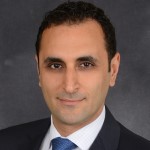Discover an innovative webinar delving into automated model building tool to speed up the creation of solid health economic models and to meet health technology assessment (HTA) guidelines. Health economic models are now used in every stage of product development, from early planning and portfolio selection based on target product profiles; through analyses to understand which gaps in the evidence have the biggest impact on predicted value; to HTA submissions, budget impact estimates and price negotiations.
To facilitate quicker automated model building, whole disease models that can be reused have been proposed. The National Institute for Health and Care Excellence (NICE) in the United Kingdom is piloting the pathway assessment framework where HTA will be supported by an open-source model available to all stakeholders. This will also help ensure consistency across decisions that previously were hard to consolidate across single technology appraisals.
In this webinar, Pfizer and Evidera will provide insights into an innovative approach to producing models faster via automation of much of the structuring.
The webinar will begin with a description of developments that led Pfizer to pursue the creation of these innovative tools to ensure faster approaches to modeling across multiple disease areas. Dr. Caro will describe in non-technical terms the components of the server-based platform solution, the IT requirements and the automation wizards.
Dr. Ishak will present an automated time-to-event equation-fitting tool that can quickly produce the equations required for these models. Finally, the panel will discuss the benefits of automated model building using Python and the DICE methodology and the challenges regarding training model builders and users and making such models submission-ready.
Join this webinar to gain insights into the value of an innovative server-based model-building tool to greatly speed up the creation of solid health economic models to meet good practice guidelines and HTA guidance and how automation tools can leverage the power of server-based installations.
Speakers

(Moderator) Agnes Benedict, Executive Director, Scientific Affairs, Evidence Synthesis, Communication and Modeling, Evidera, part of the PPD clinical research business of Thermo Fisher Scientific
Ágnes Benedict, MSc, MA, is the Executive Director of Scientific Affairs with Evidera Evidence, Modeling and Communications team and a Senior Research Leader in Modeling and Simulation.
Ms. Benedict is responsible for the scientific integration of evidence synthesis, market access communication and modeling teams, ensuring an awareness of scientific, global health policy and regulatory advances impacting the pharmaceutical industry and health economics and outcomes research in the team. She provides guidance to best practice initiatives. She works on projects requiring innovative modeling methods and multidisciplinary approaches, across several disease areas.
Ms. Benedict is an Advisory Editorial Board member of Value and Outcomes Spotlight Magazine of the International Society of PharmacoEconomics and Outcomes Research. She holds a BS in Economics, a master’s degree in public economics from the Budapest University of Economic Sciences in Hungary and a master’s in health economics from the University of York, UK, as well as a postgraduate certificate of statistics from the University of Sheffield, UK. She has presented studies at international conferences and is the co-author of manuscripts in several peer-reviewed journals.

J. Jaime Caro, MDCM, FRCPC, FACP, Chief Scientist, Evidera, part of the PPD clinical research business of Thermo Fisher Scientific
Dr. J. Jaime Caro, MDCM, FRCPC, FACP, Professor in practice, LSE; Professor of Medicine, Epidemiology, Biostatistics (adj) at McGill University; Honorary Visiting Professor with the Saw Swee Hock School of Public Health, National University of Singapore and Chief Scientist at Evidera.
For Germany’s IQWiG, Dr. Caro proposed an innovative approach to health technology assessment, involving efficiency frontiers. His recent work involves leveraging hybrid growth/decay functions to forecast highly local COVID-19 trajectories; development of DICE 2.0, a unified approach to modeling that enables rapid, standardized and less error-prone forecasting models; a broader approach than QALYs to value health benefits, the BADIE.
He led ISPOR-SMDM’s task forces for good modeling practices and modeling quality assurance, and
chairs ISPOR’s science and research committee.

K. Jack Ishak, PhD, Vice President Statistical Methodology and Strategy, Evidence Synthesis, Communication and Modeling, Evidera, part of the PPD clinical research business of Thermo Fisher Scientific
Dr. K. Jack Ishak, PhD, is Vice President of Statistical Methodology and Strategy at Evidera. Dr. Ishak focuses on ensuring Evidera remains a scientific leader in the application and development of statistical methods for health technology assessment, real-world studies and patient-reported outcomes by fostering flexible and integrated solutions to research projects and promoting best-in-class capabilities and training.
He has been involved in methodological developments in indirect treatment comparison (simulated treatment comparisons), predictive analyses to model disease progression, projection of incomplete survival curves, sequential modeling of treatment lines, crossover adjustment methods in oncology and the use of simulation for disease modeling and for testing novel study designs (e.g., Bayesian adaptive designs in the context of comparative effectiveness research).
More recently, Dr. Ishak was involved in developing a forecasting tool combining growth and decay and dynamic disease transmission modeling to predict COVID-19 case counts across a wide range of locations. His current work focuses on novel applications of treatment effect measures in rare disease trials, sample size planning for studies leveraging external comparator arms, and the potential of automation in statistical analyses for comprehensive, standardized and reliable reporting of results. Dr. Ishak has been published extensively in peer-reviewed journals.
Dr. Ishak received his undergraduate degree in statistics from Concordia University and obtained his master’s and doctoral degrees in biostatistics and epidemiology from McGill University.
Who Should Attend?
This webinar will appeal to global pharma and biotech companies in these areas:
- Health economics/outcomes research (HEOR)
- Market access
- Evidence generation
- Payers and HTA agencies
What You Will Learn
Attendees will gain insights into:
- The value of an innovative server-based model-building tool to greatly speed up the creation of solid health economic models that meet good practice guidelines and health technology assessment (HTA) guidance
- How automation tools can leverage the power of server-based installations while preserving the Excel-based nature of models preferred by stakeholders
Xtalks Partner
Evidera, part of the PPD
Evidera, part of the PPD clinical research business of Thermo Fisher Scientific, is a leading provider of evidence-based solutions to demonstrate the real-world effectiveness, safety, and value of biopharmaceutical and biotechnology products from early development through loss of exclusivity. We provide integrated scientific expertise and global operational capabilities to help you generate the evidence needed to optimize the market access and commercial potential of your products. Evidera has over 35 years of leadership and experience in strategic consulting, health economics and outcomes research, and real-world evidence planning and generation.
You Must Login To Register for this Free Webinar
Already have an account? LOGIN HERE. If you don’t have an account you need to create a free account.
Create Account





